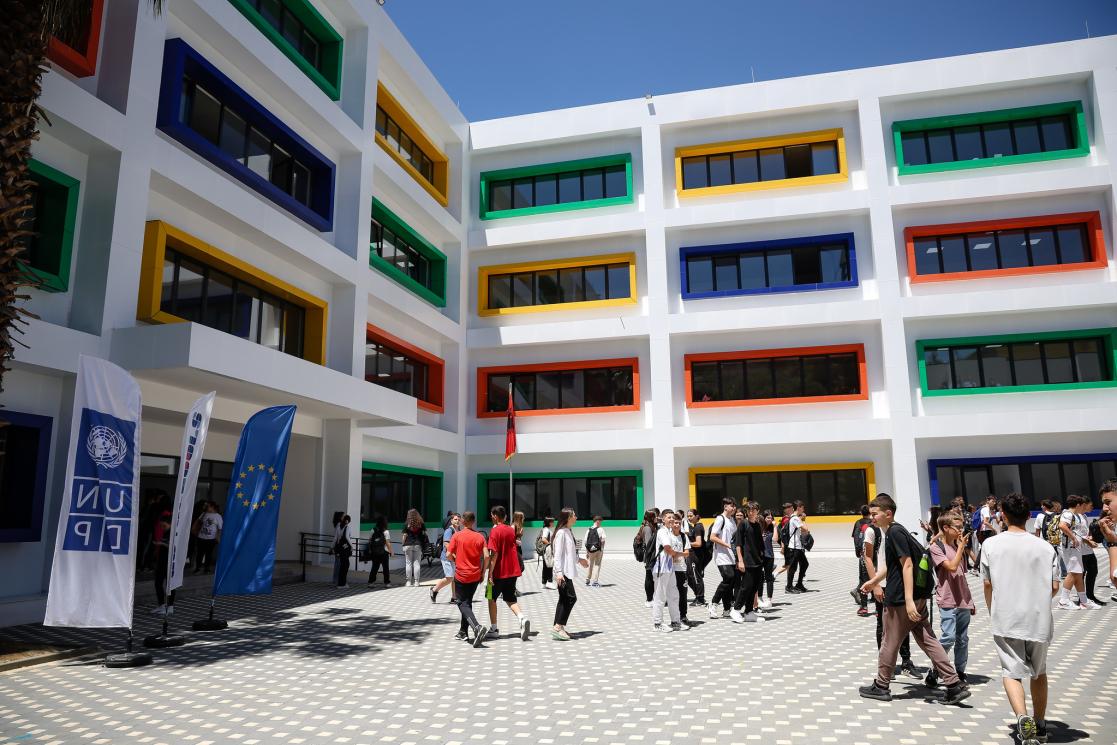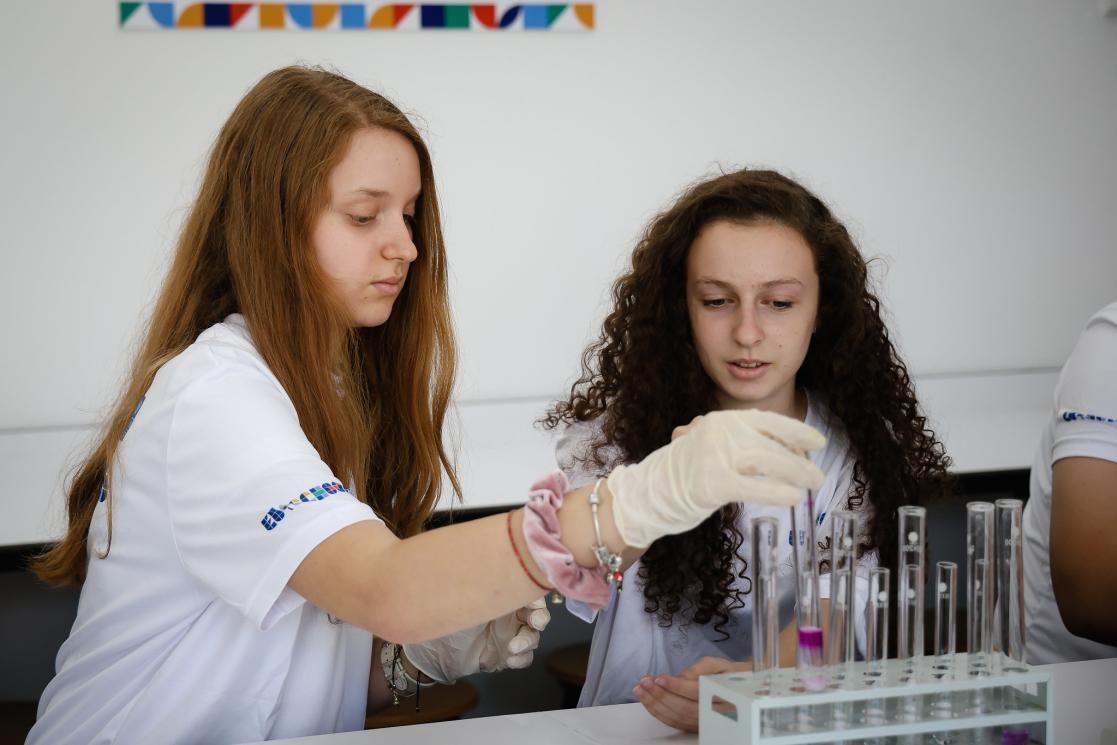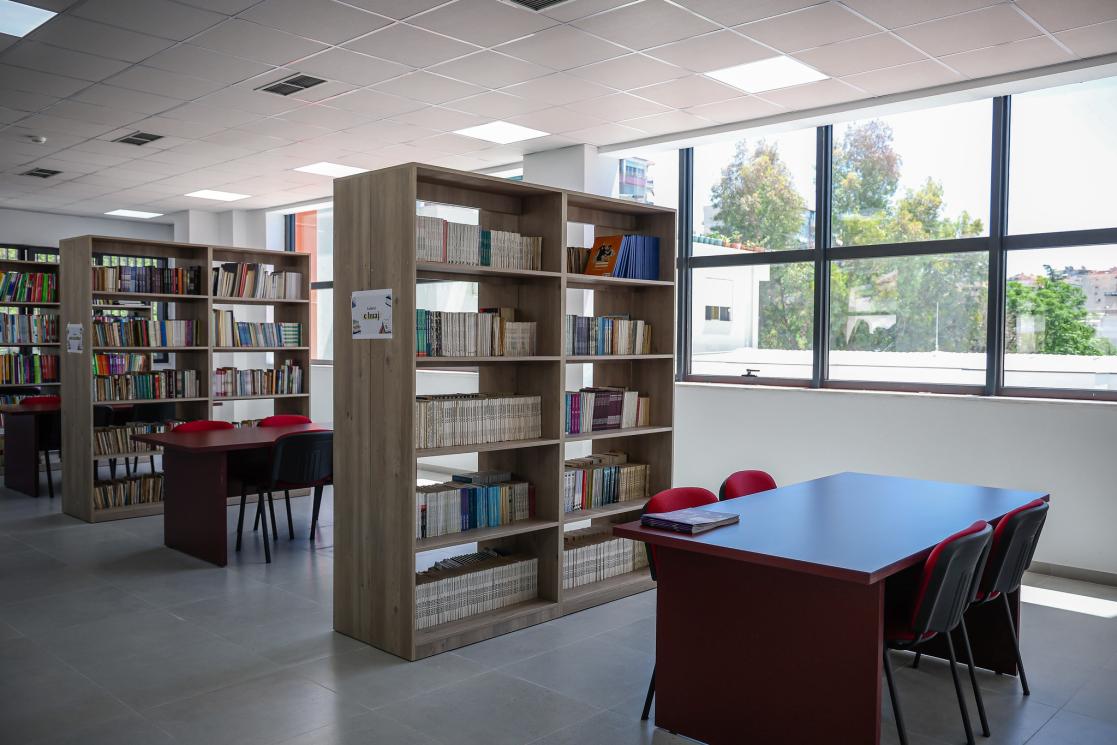EU4Schools, building the future with EU standards

Over 19,000 children are beginning their new school journey today in modern facilities, thanks to the EU4Schools programme. Launched in April 2020, four years later, 58 schools and kindergartens have already been reconstructed or repaired. Many of these schools, built before the 1990’s were not only damaged by the 2019 earthquake but also faced challenges in accommodating children with special needs and lacked modern appliances and fixtures.
Given these circumstances, the EU4schools programme is guided by two main principles: Build Back Better and Build Back Together. Focusing on risk prevention and catering to the needs of two generations, all construction works across the 63 education facilities complies fully with Eurocode 8, the standard for designing new buildings and retrofitting existing ones to be earthquake-resistant. This includes disaster-resilient technologies, ensuring that the investments are both “disaster-smart” and result in quality improvements, such as energy efficient systems and enhanced accessibility for individuals with disabilities.

EU Delegation to Albania
Hazardous building materials like asbestos have been banned. Moreover, to reduce greenhouse gas emissions and improve energy efficiency, eco-friendly furnishings and equipment, including LED lights instead of mercury-containing fluorescent bulbs, and solar panels, have been implemented. The Build Back Better methodology incorporates accessible construction principles, resulting in new facilities equipped with elevators, wheelchair ramps, accessible doorways, stairways, and hygienic facilities. Additionally, high schools now feature new chemistry and physics labs outfitted with EU-standard safety equipment, including safe chemical storage rooms and fume hoods.

EU Delegation to Albania
Spaces and Sports
In the immediate aftermath of the earthquake, life seemed to come to a halt. Schools were closed, damaged, and silent. Inside, physical assets such as furniture, ICT equipment, libraries, and learning materials were also destroyed. Four years later, new libraries have become vibrant meeting places for pupils, providing reading spaces where colourful books fuel their imaginations. In the gyms, students now enjoy volleyball and basketball, even after school hours.

EU Delegation to Albania
Beyond these improvements, green spaces, gardens, art spaces, and multifunctional rooms have been added to the school premises. Schools now also feature indoor and outdoor sports facilities, playgrounds, and dedicated rooms for medical care and psychological support—creating a modern, nurturing environment.
BACKGROUND INFORMATION
“EU4Schools” is a Programme funded by the European Union with a with €75 million contribution in response to the recovery process following the earthquake of November 26, 2019. The Programme is being implemented by the UNDP, in cooperation with the Albanian Government. 63 education facilities are targeted by the Programme in 11 municipalities, Kruja, Durrës, Kurbin, Kamza, Kavaja, Tirana, Mirdita, Lezha, Rrogozhina, Shijak and Vora. More than 1 million people are benefiting from the programme, from which, 24 000 are students and teachers. Based on the Build Forward Together approach, 68 public consultations with more than 1,800 beneficiaries including representatives of the local government and local institutions, teachers, parents and students have been held.

EU Delegation to Albania





